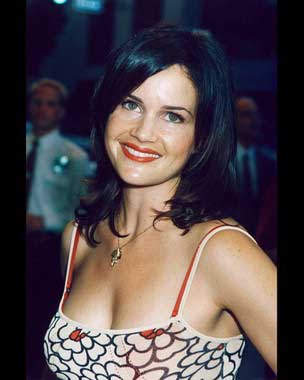On the Threshold of---?
He started out on a trek and now he’s on the threshold. But of what?
The 1950s? Maybe. That was the last time that alien invasions were so popular. Kicked off by the very profitable second movie version of the very first space invasion tale—H.G. Wells’ “War of the Worlds,” first published more than a century ago---all three commercial broadcast networks have stories about mysterious aliens. “Threshold” on CBS seems to be getting the best reviews, and of course it’s of interest to Star Trek fans because former Star Trek producer-writer Brannon Braga is one of the executive producers, and Brent Spiner (Data) is one of the on-screen regulars.
(Those aren’t the only Star Trek connections, by the way. Longtime Trekker Michael Sussman is a supervising producer, David Gautreaux—who was slated to be the new Vulcan, the Mr. Spock replacement on the original cast’s second Star Trek TV series, and got a small consolation part in TMP instead—has a recurring role.)
The threat of terrorism supposedly inspired this throwback genre, previously popular in movies in the early Cold War 1950s (see
Cold War Cinema for details), when it was the threat of Communism and instant nuclear annihilation. Then the correspondence was more precise: bombers and missiles come without warning to destroy from the sky; so do space aliens. Nuclear bombs cause weird biological mutations; so you get movies about giant ants, locusts, spiders, etc—the land of the bug-eyed monster movie.
Now it’s more amorphous, but the fear is out there. If terrorism has faded a little, there’s hurricanes and the climate: Revenge of the Earth. (Even Spielberg’s space alien machines came up out of the ground this time.)
Certainly “Threshold” is different stylistically from those fifties films. The best of them may have had a fairly lengthy “reveal” (the process of realizing there’s a monster or aliens, then actually seeing it/them) but the main event was the battle or attempt to destroy them. Usually the first several tries fail and all seems lost until they hit on the thing that works (“Water! It doesn’t like water!”—which would be funnier if that wasn’t the solution in one of the more recent alien invasion films, M. Night Shyamalan’s “Signs”. Suggesting, I thought at the time, that the tagline for “Signs II” should be “They’re Back---With Raincoats!”).
But a television series is a different sort of beast, and as pioneered by such recent miniseries as “Taken” and “The 4400,” the reveal can be extended forever, maybe even 100 episodes. “The X Files” did it for its entire run, although it meandered a lot into side issues.
Like the dynamic duo of “X-Files,” the stars are investigators (A New York Times story on Threshold by Dave Itzkoff said “with its emphasis on forensic investigations and the interpersonal dynamics of its cast,[it] could pass for another spinoff of CSI,” but you could also see CSI as a variation on X-Files which preceded it.)
Judging from the episode I saw (last week’s, the third episode; I forgot when the first was on, then taped the second but somehow taped over it before I saw it.), this group at least doesn’t have to deal with hostile employers. It’s also more like a CSI in the number of main characters, making it also…well, more like a Star Trek series. (With the mystery being where the romance(s) will be?)
While “Enterprise” had to strain to include the apparently mandatory sexiness, “Threshold” has gone the classy big network route: cast a woman lead who nobody will dare say is too beautiful for her job, and put her in—shall we say flattering?---clothes that women with her job might be unlikely to wear. And then add tasteful details, like the kidnap victim who just happens to be an attractive young woman, caught in her underwear. And so while we wonder about what sinister alien force is causing these weird men to dig a hole in her floor, she is always in the frame, writhing in her ropes. And so we are back in the fifties monster films---or at least, the posters for them.
But the story was credible, the writing (as well as the writhing) seemed pretty good, with some terrific touches that the acting ran with, like the guy who had been locked away in a mental institution for most of his life, wondering aloud what had happened to the bike he had as a boy—“they probably threw it away.” A startling human moment in all the alien police procedural plotting.
There already appear to be elements of the uncanny, of magic (technological or otherwise) in "Threshold" that a space alien story in the past probably couldn’t have gotten away with and still maintained enough dramatic credibility. All kinds of shows in the past decade or so---from the brazen anachronisms of the Hercules and Xenia shows, to the recent fashion in psychic detectives and intervening angels, as well as the aforementioned M. Night and his quasi-religious occultism—contribute to audience expectations that no longer depend on plausibility based on orthodox science.
Arguably, Star Trek prepared the way by providing the scientific plausibility that was necessary for its audience and the 1960s general audience, while introducing other elements: aliens with inexplicable powers, and for humanoids certain psychic abilities as natural, and finally accepted by science. So the technobabble that Braga disses, probably contributed to the fact that Threshold can seem to depend on contemporary science, but can also throw in some fantastic elements, and get away with them.

